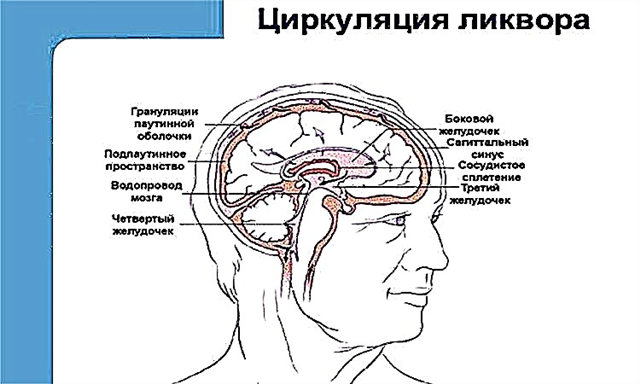Every woman dreams of a good pregnancy. However, expectant mothers are ready to cope with “temporary inconveniences” - morning sickness, vomiting, changes in taste preferences, sensitivity to odors and other manifestations accompanying pregnancy. Moreover, many patients believe that their occurrence is natural and expected. But what if other symptoms appear that cannot be attributed to the classic signs of pregnancy - for example, tinnitus? Can a dangerous disease act as a provocateur or should an unusual sound be perceived as a variant of the norm? Whatever the answer, tinnitus is a cause for legitimate concern and must be investigated.
Causes

Hearing sounds that no one else around people hears is not just unpleasant, it is frightening. Especially if the symptoms appear in a pregnant woman. She is responsible not only for her own health, but also for the health of the child, therefore fears are associated with a huge number of questions, the most significant of which are: "How dangerous is it?" and "Will drug therapy be required"?
Various pathological conditions can cause tinnitus during pregnancy, among which the most common are:
- Syndrome of the inferior vena cava.
- Arterial hypertension syndrome.
- Infectious and inflammatory diseases of the nasopharynx (rhinitis, rhinopharyngitis).
- Infectious and inflammatory diseases of the ear (otitis media).
It is impossible to single out a single etiological factor, the presence of which could explain all cases without exception. It is important to pay attention not only to the fact that a woman is carrying a child. The diseases that she had before pregnancy are also important. If they are chronic, they can provoke symptoms - including ear noise.
Do not deny the likelihood of the formation of a sulfur plug, which may be the result of improper ear care. Contrary to popular belief, the ear canal does not need to be thoroughly cleaned with ear sticks and even more so with sharp objects. Therefore, if a pregnant woman is faced with tinnitus (especially one-sided), it is worth contacting an otolaryngologist to resolve the issue of the presence of a sulfur plug.
Inferior vena cava syndrome
 The inferior vena cava syndrome has many synonymous names: postural hypotensive syndrome, aortocaval compression syndrome, etc. The timing of the onset of symptoms corresponds to the period from 27 to 30 weeks of pregnancy, and clinical manifestations occur in the supine or sitting position. The cause of the syndrome is anatomical changes, as a result of which the uterus compresses the inferior vena cava. Key points of pathogenesis can be identified:
The inferior vena cava syndrome has many synonymous names: postural hypotensive syndrome, aortocaval compression syndrome, etc. The timing of the onset of symptoms corresponds to the period from 27 to 30 weeks of pregnancy, and clinical manifestations occur in the supine or sitting position. The cause of the syndrome is anatomical changes, as a result of which the uterus compresses the inferior vena cava. Key points of pathogenesis can be identified:
- an increase in the size of the uterus of a pregnant woman;
- an increase in pressure values in the abdominal cavity;
- lifting the dome of the diaphragm;
- compression of the great vessels of the abdominal cavity and retroperitoneal space.
The inferior vena cava syndrome is not an obligatory manifestation of the course of pregnancy.
Many obstetricians-gynecologists consider the development of the inferior vena cava syndrome during pregnancy as a manifestation of insufficient vascular adaptation after the onset of anatomical changes. Therefore, not every pregnancy is characterized by hearing symptoms. Tinnitus in the case of inferior vena cava syndrome appears only in some patients, often has a hissing subtone, objective in nature (can be heard with a phonendoscope). It is considered as an important differential diagnostic feature, since it can indicate a number of different pathologies, which will be discussed in the following sections.
Arterial hypertension syndrome
Arterial hypertension is understood as an increase in blood pressure (systolic more than 140 mm Hg, diastolic - more than 90 mm Hg). The syndrome of arterial hypertension is an urgent problem in obstetrics, since it can occur in various clinical situations that explain the causes of tinnitus during pregnancy:
- Chronic arterial hypertension.
- Gestational hypertension.
- Preeclampsia and eclampsia.
Chronic arterial hypertension is recorded even before pregnancy. Regardless of the cause of the increase in blood pressure, a woman could have complained of ear noise in the past. Gestational hypertension is called arterial hypertension detected before gestational age, which corresponds to 20 weeks. In addition, an increase in blood pressure is one of the main components of the clinical picture of preeclampsia, which is detected after 20 weeks of pregnancy.
 The reasons for the increase in blood pressure and the appearance of ear noise depend on the variant of the disease. They are not always known (essential hypertension, preeclampsia) or are associated with damage to the endocrine, urinary and other body systems. In the second case, they speak of symptomatic hypertension.
The reasons for the increase in blood pressure and the appearance of ear noise depend on the variant of the disease. They are not always known (essential hypertension, preeclampsia) or are associated with damage to the endocrine, urinary and other body systems. In the second case, they speak of symptomatic hypertension.
The noise appears when blood pressure rises, disappears when it returns to normal values.
The characteristic of the subjective sounds that the patient hears usually contains an indication of the time of the onset of the noise. If the blood pressure indicators are within the permissible values, but the "background noise" persists, it is necessary to think about other causes of its occurrence, in addition to arterial hypertension syndrome. It is worth noting that long-term hypertension, especially in the absence of adequate drug correction, can contribute to the development of secondary changes, including neurosensory hearing loss, accompanied by the appearance of subjective noise of different tonality.
Otitis media, rhinitis, rhinopharyngitis
A pregnant woman may suffer from acute or chronic otitis media, as well as rhinitis or rhinopharyngitis. Among the lesions of the departments of the organ of hearing, there are various options - however, the most pronounced noise is provoked by:
- acute tubo otitis;
- acute purulent otitis media;
- labyrinthitis.
A description of the noise alone is not enough to confirm or disprove a diagnosis. It is necessary to evaluate all objective symptoms and complaints of the patient. However, it is worth knowing that with tubo-otitis, the noise is explained by dysfunction of the auditory tube, and the disease usually occurs as a result of the presence of an inflammatory process in the nasopharynx.
Noise in the ear during pregnancy may be due to an exacerbation of chronic respiratory disease.
A woman may complain about the appearance of subjective sounds after hypothermia against the background of signs of respiratory pathology. If chronic foci of infection have not been sanitized, a decrease in local immune defense contributes to the activation of pathogenic flora and the appearance of symptoms.
Treatment
 There are no drugs that can exclusively affect tinnitus. Since it is only part of a single clinical picture, treatment should be directed to the underlying pathology. Suppression of noise with the help of extraneous sounds (for example, loud music) can aggravate the condition, interfere with the establishment of the correct diagnosis. If the cause of the noise is a sulfur plug, after its removal by a doctor (most often by washing), the unpleasant symptom immediately and completely disappears.
There are no drugs that can exclusively affect tinnitus. Since it is only part of a single clinical picture, treatment should be directed to the underlying pathology. Suppression of noise with the help of extraneous sounds (for example, loud music) can aggravate the condition, interfere with the establishment of the correct diagnosis. If the cause of the noise is a sulfur plug, after its removal by a doctor (most often by washing), the unpleasant symptom immediately and completely disappears.
If inferior vena cava syndrome is confirmed, a pregnant woman should not sleep on her back.In this way, the onset of symptoms can be prevented, and the "background noise" will cease to bother the patient. If it is necessary to take this position, you need to limit the duration of its preservation, put a pillow or roller under the right thigh - the angle of rotation to the side should be more than 15 degrees. Any medications that a pregnant woman takes are prescribed only by her supervising doctor.
In order to treat the syndrome of arterial hypertension and the accompanying tinnitus, the following drugs are offered:
- Methyldopa.
- Nifedipine.
- Metoprolol.
- Amlodipine.
A significant increase in blood pressure may require urgent medical attention.
To get rid of tinnitus with rhinitis and rhinopharyngitis, complex treatment is necessary. For both viral and bacterial infections, it is shown:
- a sufficient amount of liquid (water, tea, compote);
- rinsing the nose with saline;
- the use of saline nasal drops.
The use of decongestants (Xylometazoline, Nazivin) should be discussed with the attending physician.
These drugs quickly relieve swelling and nasal congestion; currently on the pharmaceutical market there are forms of prolonged action. However, they are not suitable for long-term and frequent use, since they can be addictive, various side effects. Although a clear connection between the use of decongestants and the formation of fetal malformations has not been established,  experts do not recommend using this group of drugs in the first trimester of pregnancy.
experts do not recommend using this group of drugs in the first trimester of pregnancy.
Antibiotic therapy is often required in the treatment of otitis media accompanied by "background noise". The question of its necessity, the choice of the group and dosage of drugs is the prerogative of the attending physician. Noise with purulent otitis media, as a rule, disappears after perforation of the tympanic membrane, therefore, no special measures aimed at stopping it are necessary.



